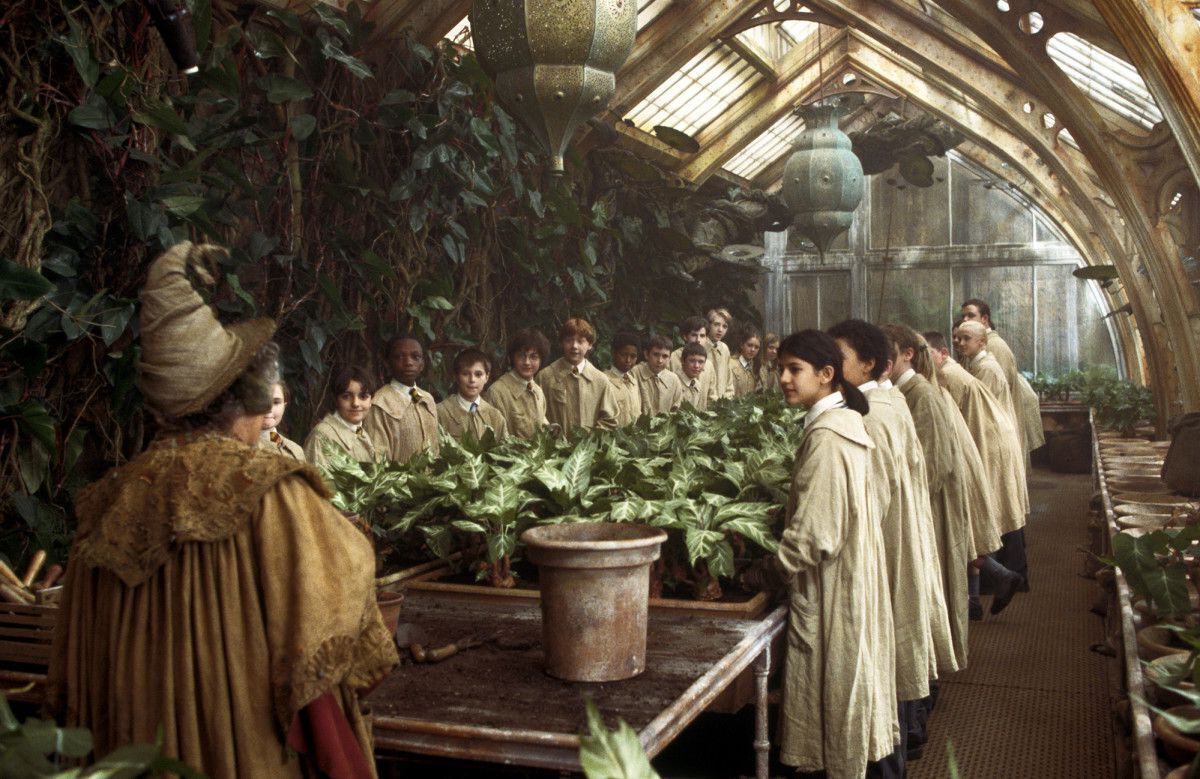
Herbology is more than just a subject in magical schools; it's a fascinating field that blends science, history, and a bit of magic. Ever wondered how plants can heal, harm, or even communicate? Herbology dives into these mysteries, revealing the secrets of nature's green wonders. From the ancient use of herbs in medicine to modern-day applications in cooking and cosmetics, the study of plants has always been crucial. Whether you're a budding botanist or just curious about the natural world, these 50 facts about Herbology will sprout new knowledge and maybe even inspire you to start your own garden. Ready to dig in? Let's get growing!
Key Takeaways:
- Herbology, the study of medicinal plants, has a rich history dating back over 5,000 years and continues to influence modern medicine with herbs like aloe vera and ginger.
- From ancient Egypt to modern science, herbology has shaped cultures and provided healing properties found in everyday plants like garlic, green tea, and mint.
What is Herbology?
Herbology is the study of plants and their medicinal properties. It has been practiced for centuries and remains a vital part of traditional medicine in many cultures. Let's dive into some fascinating facts about this ancient science.
- Herbology dates back over 5,000 years, with roots in ancient civilizations like Egypt, China, and India.
- The term "herb" originally referred to any plant used for medicinal purposes, not just culinary herbs.
- Ancient Egyptians used herbs like garlic and onion for their health benefits.
- Traditional Chinese Medicine (TCM) incorporates over 300 herbs in its practices.
- Ayurveda, the traditional medicine of India, uses herbs such as turmeric and ashwagandha.
Famous Herbalists in History
Throughout history, many individuals have made significant contributions to the field of herbology. Here are some notable figures:
- Hippocrates, known as the "Father of Medicine," used herbs extensively in his treatments.
- Dioscorides, a Greek physician, wrote "De Materia Medica," a comprehensive guide on herbal medicine.
- Hildegard of Bingen, a medieval nun, authored several works on herbal healing.
- Nicholas Culpeper, an English herbalist, published "The Complete Herbal" in the 17th century.
- Samuel Thomson, an American herbalist, developed the Thomsonian system of medicine in the 19th century.
Common Medicinal Herbs
Many herbs are well-known for their medicinal properties. Here are some you might recognize:
- Aloe vera is used to soothe burns and skin irritations.
- Echinacea boosts the immune system and helps fight colds.
- Ginger aids digestion and reduces nausea.
- Lavender promotes relaxation and reduces anxiety.
- Peppermint relieves headaches and improves digestion.
Unusual Medicinal Plants
Some plants have surprising medicinal uses. Check out these lesser-known herbs:
- Arnica is used topically to reduce bruising and inflammation.
- Feverfew helps prevent migraines.
- Goldenseal has antibacterial properties and supports the immune system.
- Milk thistle protects the liver and aids detoxification.
- Valerian root is a natural sedative that helps with insomnia.
Herbology in Modern Medicine
Herbology continues to influence modern medicine. Here are some examples:
- Aspirin was originally derived from willow bark.
- The heart medication digitalis comes from the foxglove plant.
- Quinine, used to treat malaria, is extracted from the bark of the cinchona tree.
- Paclitaxel, a chemotherapy drug, is derived from the Pacific yew tree.
- Morphine, a powerful painkiller, is obtained from the opium poppy.
Herbology Around the World
Different cultures have unique herbal traditions. Let's explore some global practices:
- In Japan, Kampo medicine integrates Chinese herbal knowledge with Japanese practices.
- Native American tribes use herbs like sage and sweetgrass in healing rituals.
- African traditional medicine employs plants like rooibos and devil's claw.
- In the Amazon rainforest, shamans use a vast array of plants for healing.
- European herbalism has a rich history, with many herbs still in use today.
Growing Your Own Medicinal Herbs
Cultivating medicinal herbs at home can be rewarding. Here are some tips:
- Basil is easy to grow and has antibacterial properties.
- Chamomile thrives in well-drained soil and helps with sleep.
- Calendula prefers sunny spots and is great for skin health.
- Lemon balm grows quickly and reduces stress.
- Thyme is hardy and has antiseptic qualities.
Herbology in Literature and Pop Culture
Herbology has made its way into books, movies, and more. Here are some examples:
- J.K. Rowling's "Harry Potter" series features herbology as a subject at Hogwarts.
- Shakespeare mentioned herbs like rosemary and rue in his plays.
- The TV show "Outlander" showcases herbal remedies used in the 18th century.
- "The Secret Garden" by Frances Hodgson Burnett highlights the healing power of plants.
- The video game "The Witcher" includes herbology as a key skill for the protagonist.
The Science Behind Herbology
Modern science continues to validate the benefits of herbs. Here are some findings:
- Turmeric contains curcumin, which has anti-inflammatory properties.
- Garlic has been shown to lower blood pressure and cholesterol levels.
- Green tea is rich in antioxidants that protect against cell damage.
- St. John's wort is effective in treating mild to moderate depression.
- Ginkgo biloba improves cognitive function and memory.
Fun Facts About Herbology
Herbology is full of interesting tidbits. Here are some fun facts:
- The world's oldest known herbal text is the "Ebers Papyrus" from ancient Egypt.
- The word "herb" comes from the Latin "herba," meaning grass or green crops.
- Some herbs, like mint, can be invasive and take over gardens.
- Herbal teas, also known as tisanes, are made by infusing herbs in hot water.
- Many modern pharmaceuticals have their origins in traditional herbal remedies.
The Magic of Herbology
Herbology isn't just about plants; it's a journey into the heart of nature's wonders. From medicinal herbs that heal to culinary spices that tantalize taste buds, the world of herbs offers endless fascination. Whether you're a budding herbalist or just curious, there's always something new to learn. Remember, herbs have been used for centuries, proving their worth time and again. They can transform your garden, kitchen, and even your health. So next time you see a dandelion or basil plant, think about the rich history and benefits they carry. Dive into herbology, and you'll find a world brimming with natural remedies, flavors, and stories. Happy exploring!
Frequently Asked Questions
Was this page helpful?
Our commitment to delivering trustworthy and engaging content is at the heart of what we do. Each fact on our site is contributed by real users like you, bringing a wealth of diverse insights and information. To ensure the highest standards of accuracy and reliability, our dedicated editors meticulously review each submission. This process guarantees that the facts we share are not only fascinating but also credible. Trust in our commitment to quality and authenticity as you explore and learn with us.


